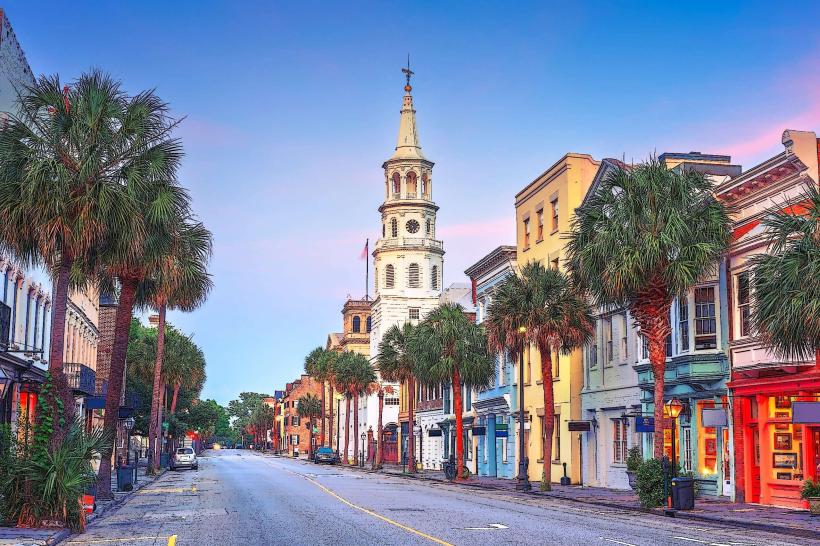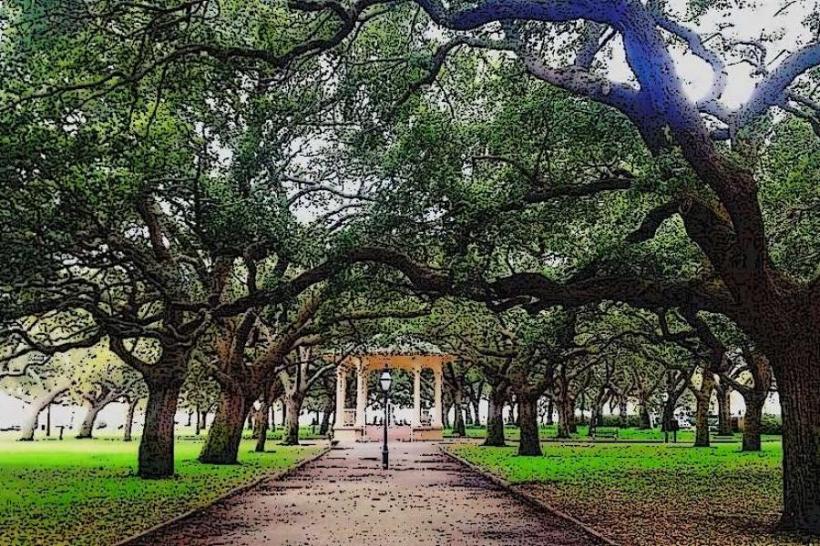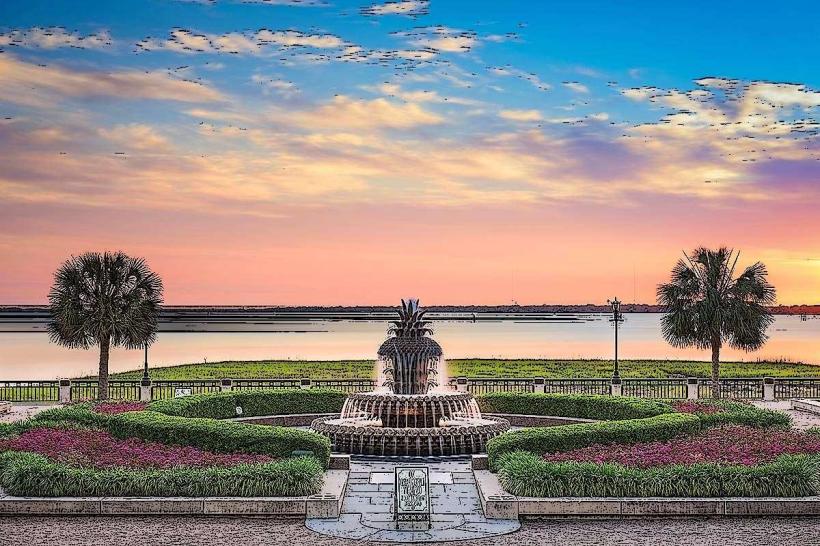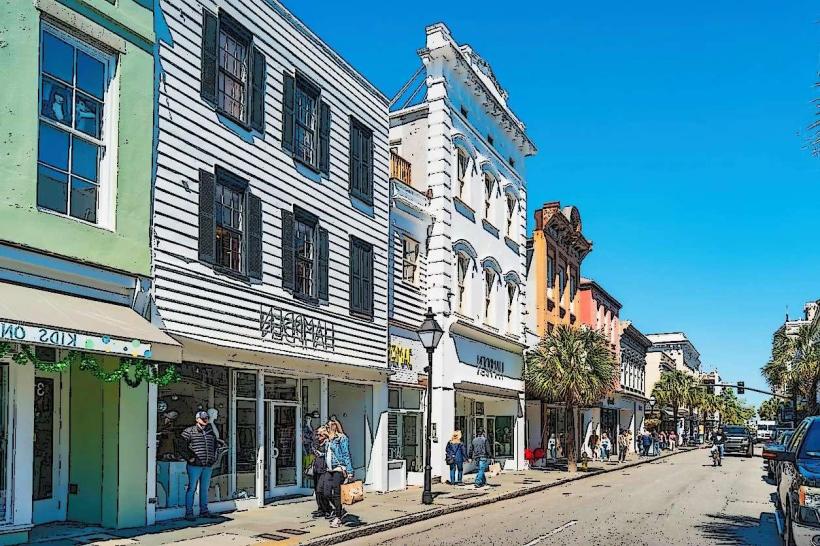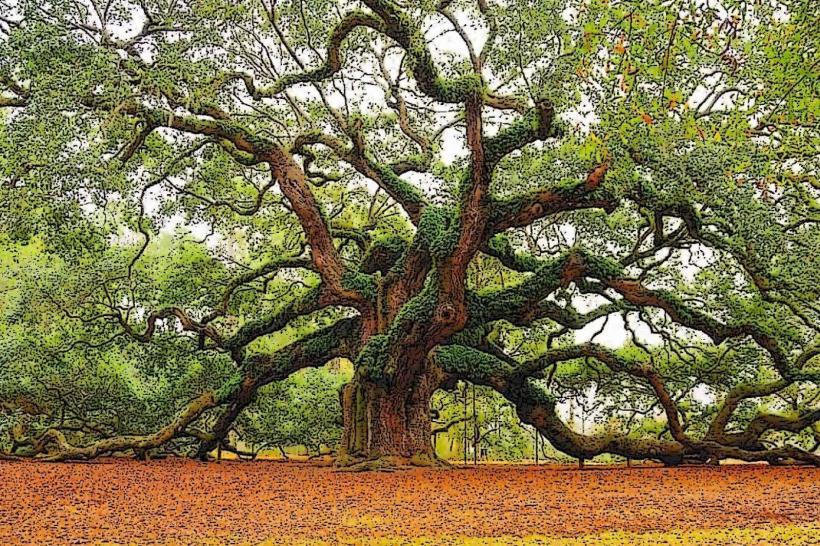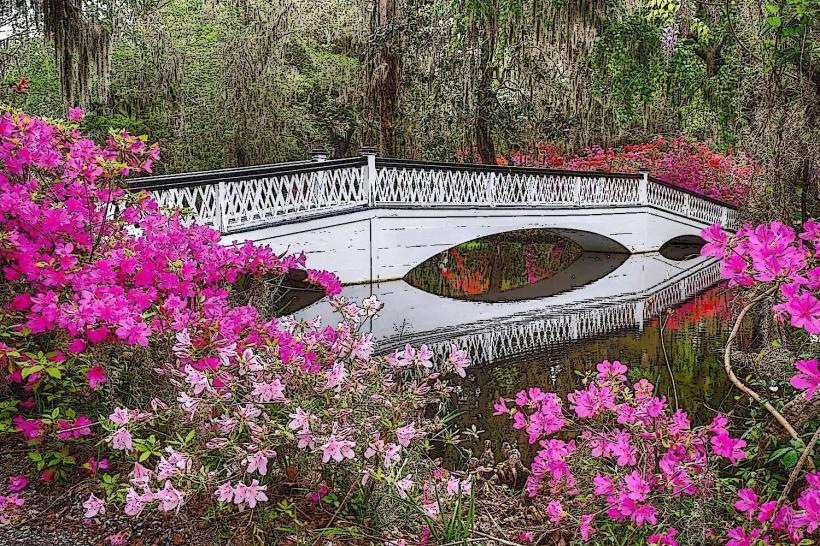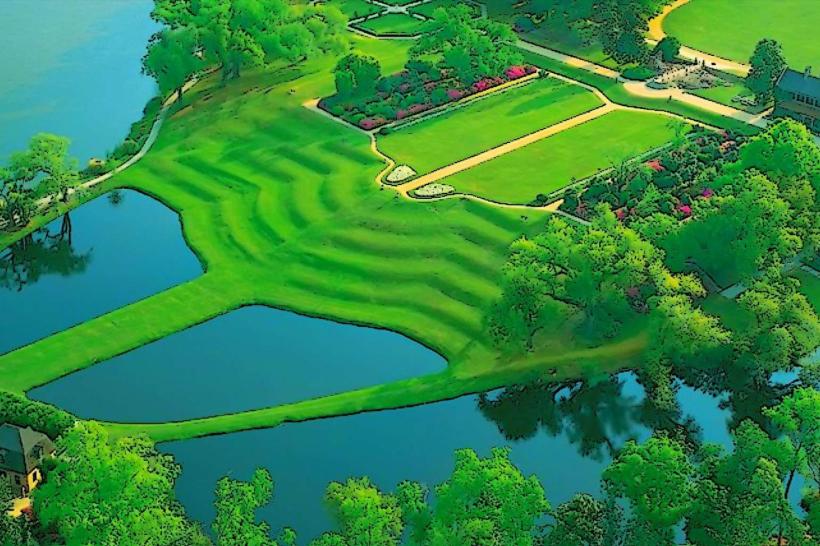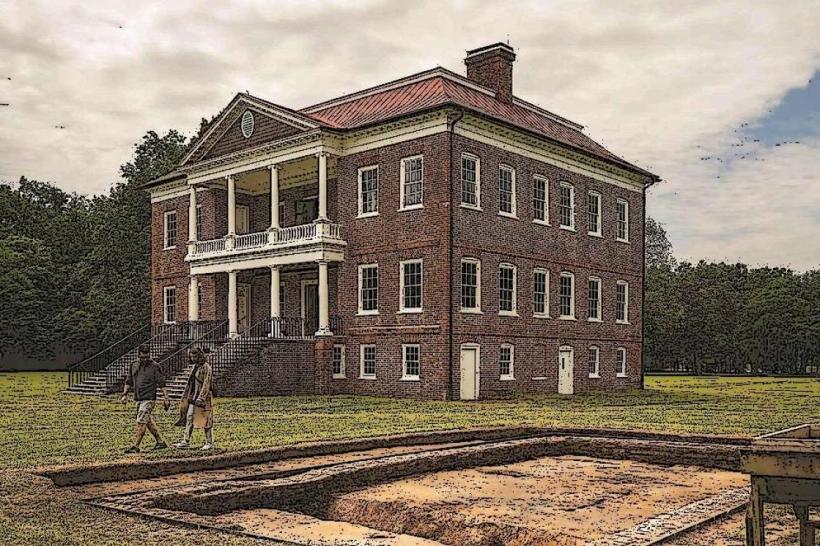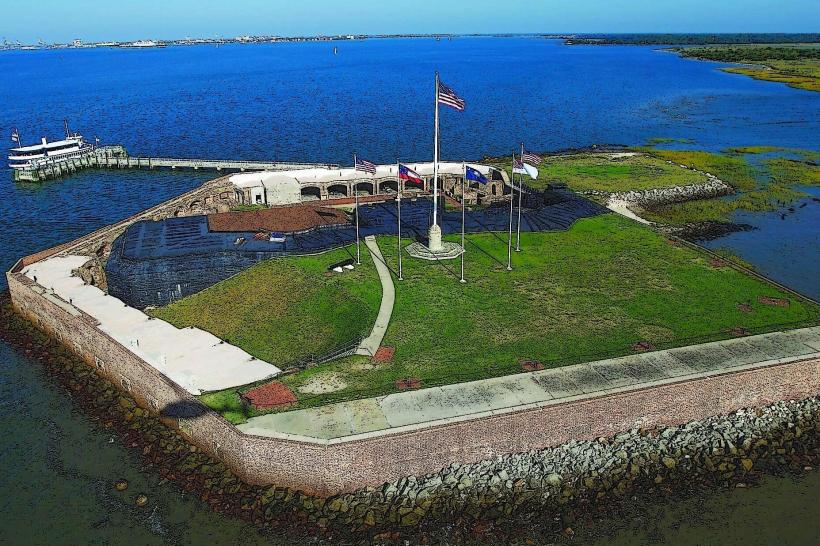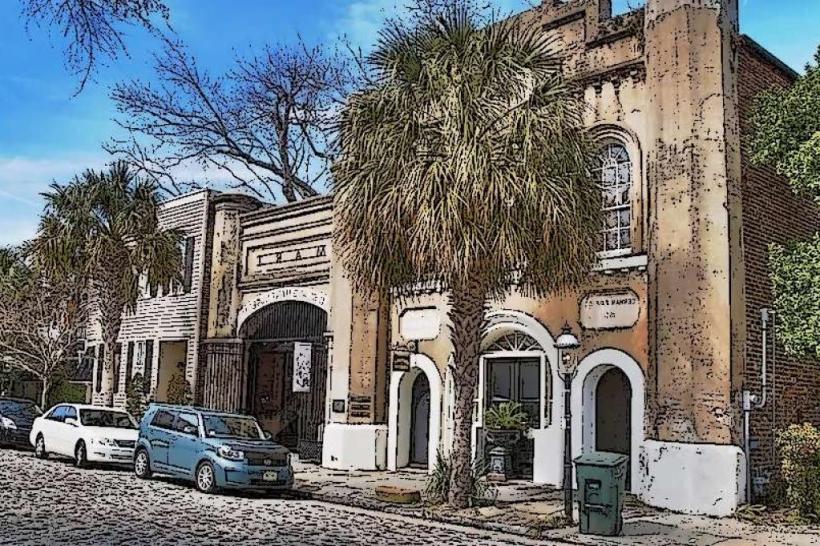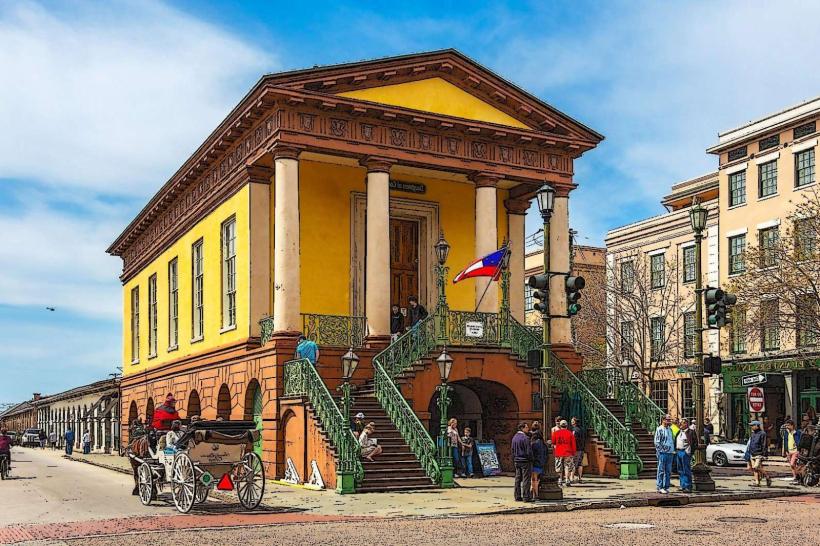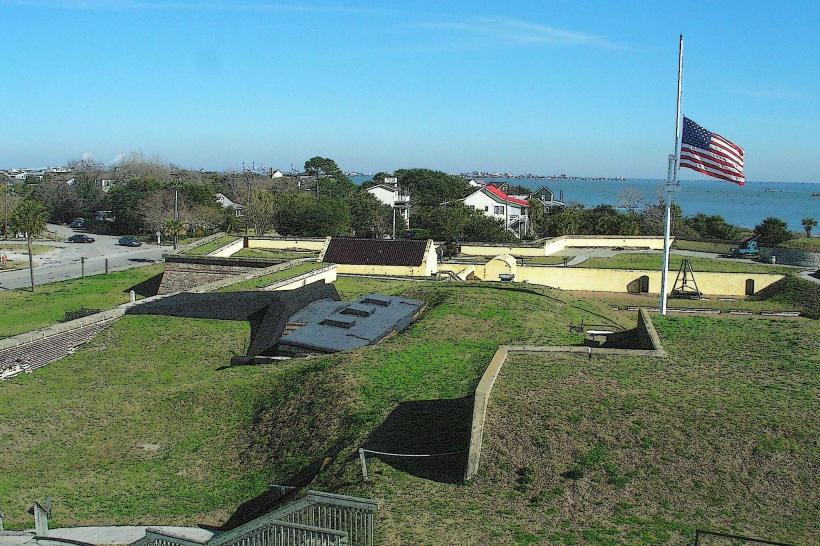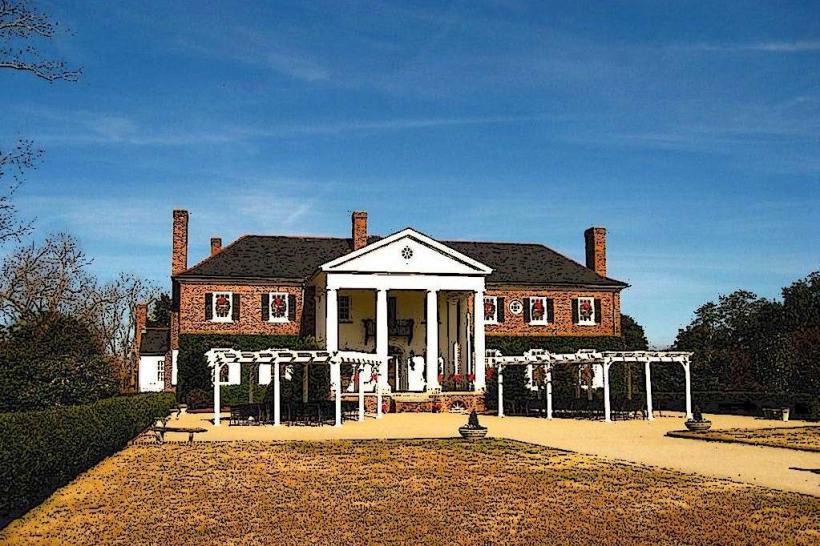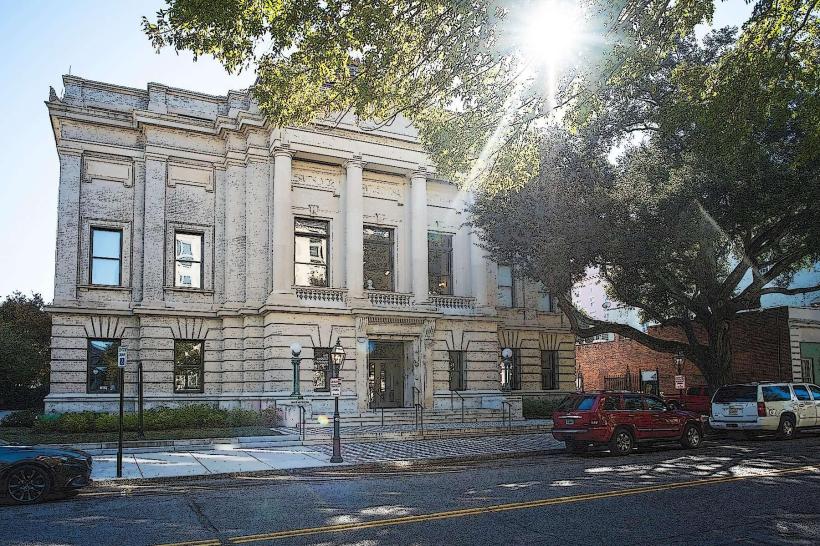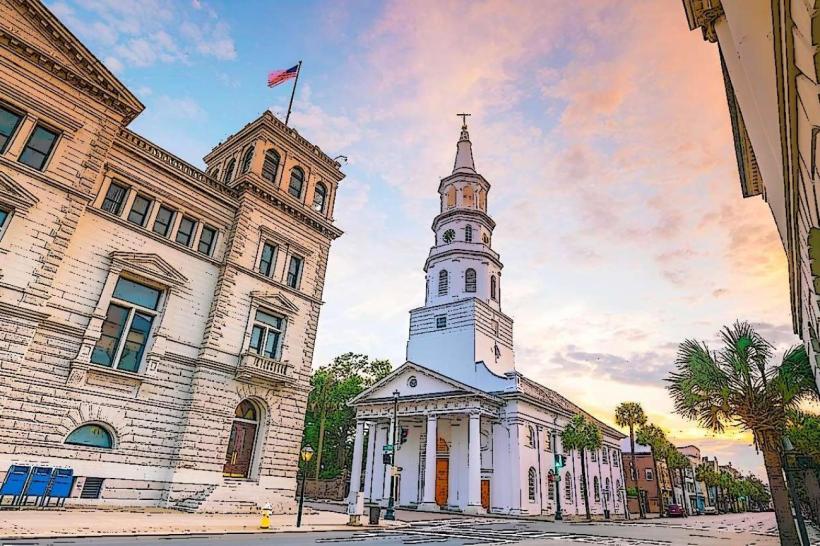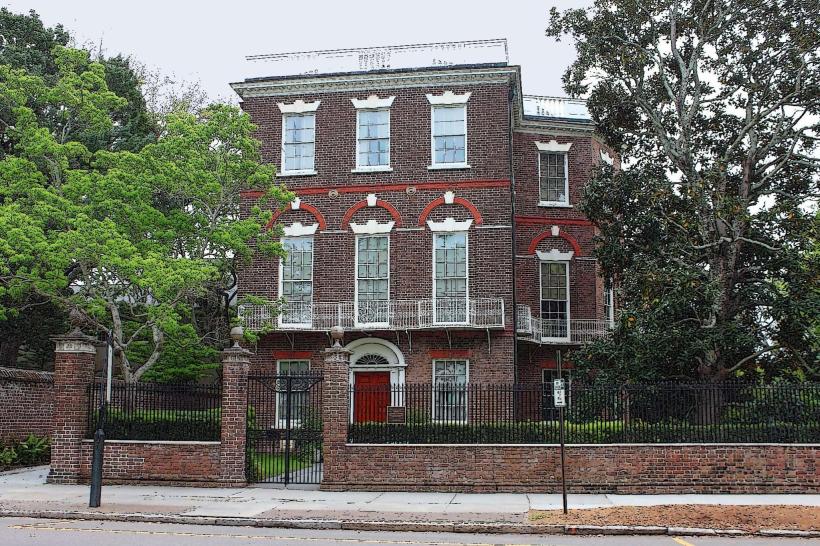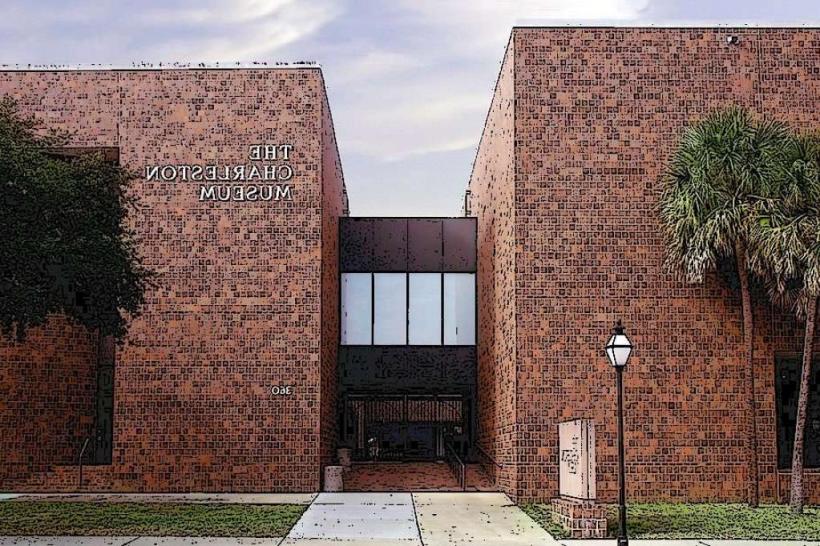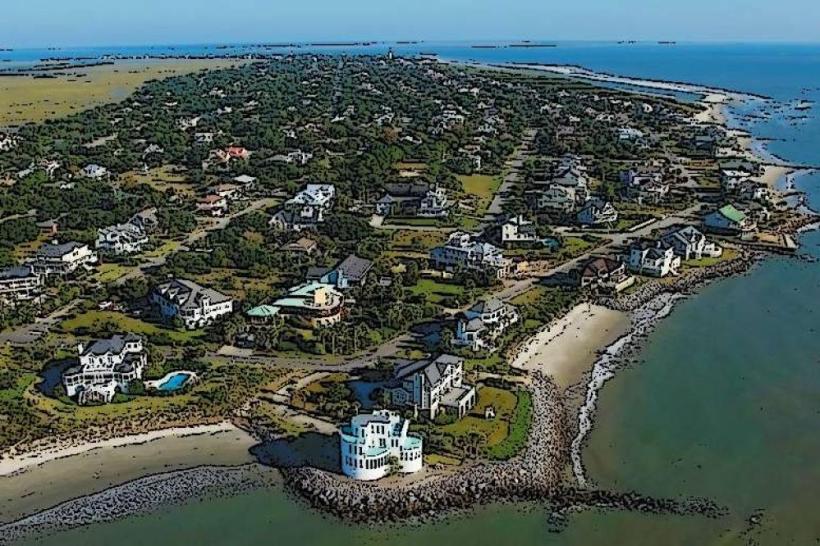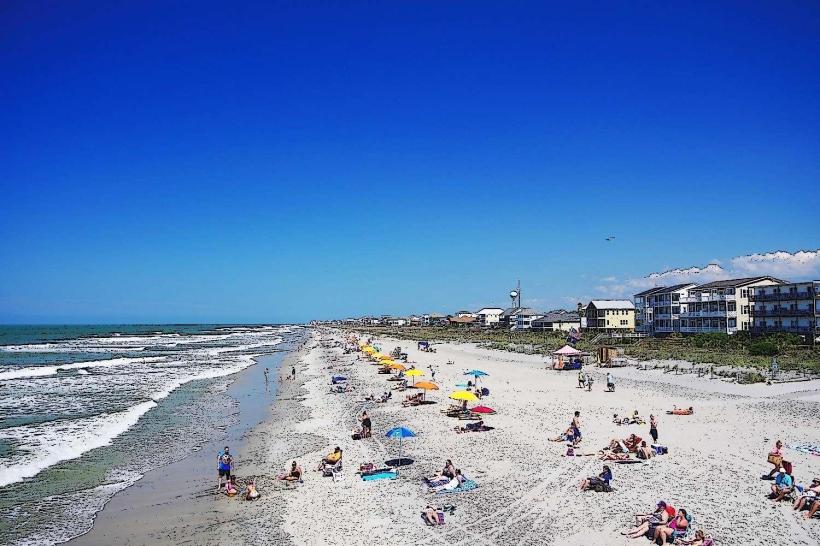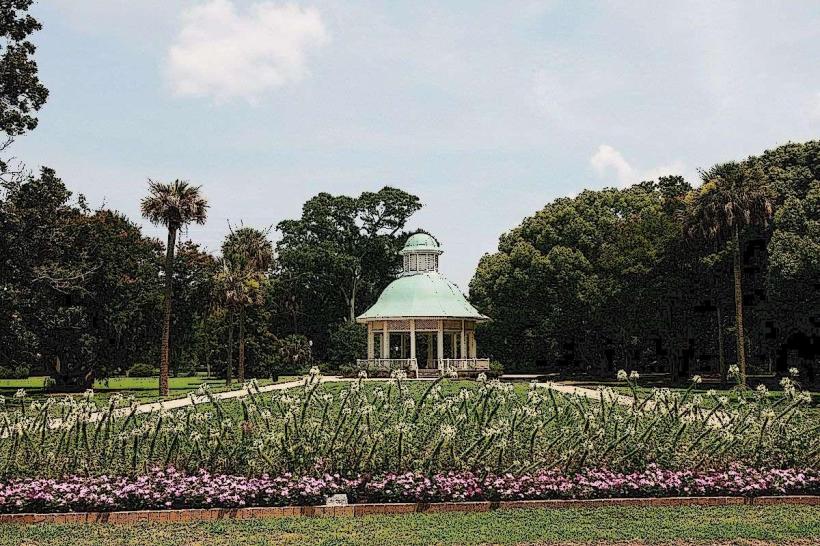Information
Landmark: Rainbow RowCity: Charleston
Country: USA South Carolina
Continent: North America
Rainbow Row, Charleston, USA South Carolina, North America
Rainbow Row – Charleston, South Carolina – In Detail
Overview
Rainbow Row is one of the most iconic and photographed landmarks in Charleston, South Carolina. It refers to a series of thirteen historic Georgian row houses painted in bright, pastel colors located on East Bay Street, just north of Tradd Street and south of Elliott Street in the heart of the Charleston Historic District. The homes face the Cooper River waterfront and are situated a short walk from other landmarks like the Battery and Waterfront Park.
Historical Background
18th Century Origins: These houses were originally built in the late 1730s through the 1740s as commercial buildings with businesses on the ground floor and living quarters above. They served as stores for merchants shipping goods in and out of Charleston’s busy port.
Post-Civil War Decline: Following the Civil War and the economic depression of the South, the area fell into disrepair. For many decades, Rainbow Row was a neglected part of the city with dilapidated buildings.
Restoration and Rebirth (1930s–1940s):
The colorful transformation began in 1931, when Dorothy Porcher Legge purchased and renovated a section of the row (specifically 99-101 East Bay Street).
She painted the buildings pastel pink, inspired by Colonial Caribbean and Bahamian color palettes, intending to brighten the area and spark revitalization.
Over time, neighboring homeowners followed her lead, and by the mid-20th century, the entire row had been restored with its signature pastel hues.
The coordinated palette was not based on historical precedent but on aesthetic charm and an effort to rebrand the district.
Architectural Features
Georgian Style: Most homes are examples of early Georgian architecture with features like symmetrical facades, dormer windows, arched doorways, and brick construction.
Narrow & Deep Layouts: True to Charleston’s historic building pattern, the homes are narrow and extend deep into the lot (a style sometimes called “Charleston single houses”).
Wrought-Iron Details: Iron balconies, gates, and lantern-style lamps enhance the charm and authenticity of the facades.
Tall Shuttered Windows: Windows are elongated and framed by working shutters, both for ventilation and protection against coastal storms.
Color Significance and Myths
Color Purpose: The pastel colors were chosen primarily for their visual appeal. However, over time, several myths and stories have developed:
Drunken Sailors Tale: Some say the bright colors helped intoxicated sailors remember which house they were lodging in.
Heat Reflection: Another theory claims the colors were used to keep the buildings cool in the subtropical climate by reflecting sunlight.
Merchants' Markings: A more practical idea is that the colors once denoted the types of goods sold inside.
None of these stories are historically confirmed but add to the charm and mystique of Rainbow Row.
Today’s Experience
Photographic Hotspot: Tourists frequently visit to capture photos of the row’s vibrant facades, often framed with palm trees, horse-drawn carriages, and cobbled streets.
Residential Use: The buildings are now private homes (not open to the public), and efforts are made to preserve their facades with strict local historic preservation codes.
Walking Tours: Rainbow Row is a featured stop on most Charleston walking tours and serves as a symbol of the city’s ability to preserve and revitalize historic architecture.
Surroundings and Accessibility
Proximity: Located close to the Charleston Harbor, Rainbow Row is walkable to nearby attractions like:
The Battery and White Point Garden (a scenic promenade).
Waterfront Park and the Pineapple Fountain.
Historic mansions like the Nathaniel Russell and Edmondston-Alston Houses.
Accessibility: Easily accessible by foot, bike, or carriage; minimal street parking nearby; sidewalks are walkable and shaded by oak and palmetto trees.
Preservation and Cultural Importance
Rainbow Row is more than just an Instagrammable spot - it symbolizes Charleston’s post-Depression commitment to architectural preservation. Its enduring popularity and visual appeal continue to inspire the city’s broader efforts to maintain its historic charm while embracing tourism.
Though private and not a museum, Rainbow Row's exterior alone captures centuries of evolution - from merchant activity to decay to colorful rebirth - now standing as a pastel-painted tribute to Charleston's enduring beauty and resilience.

